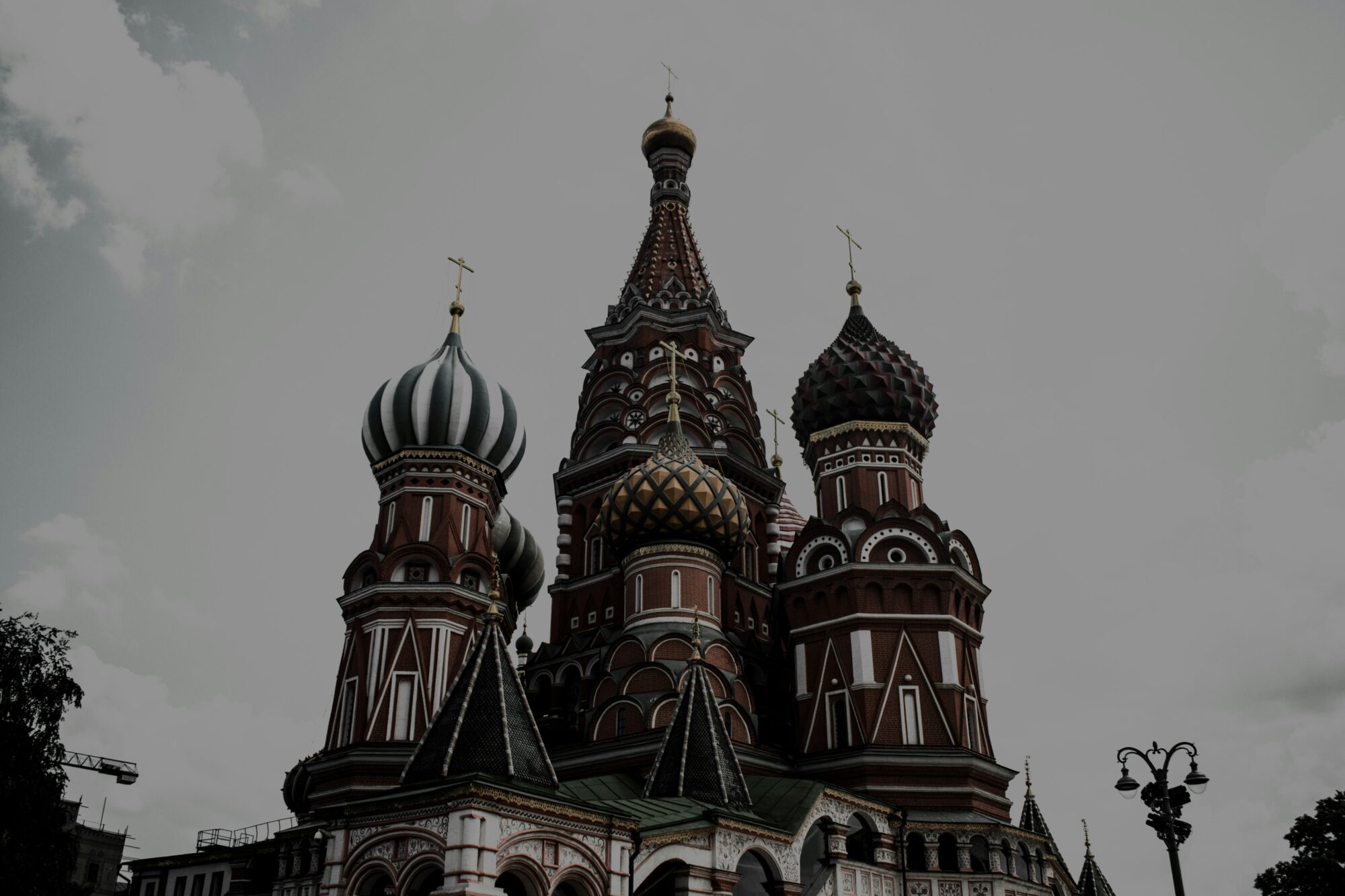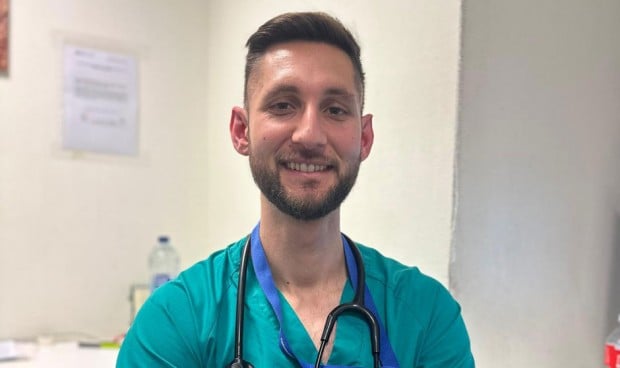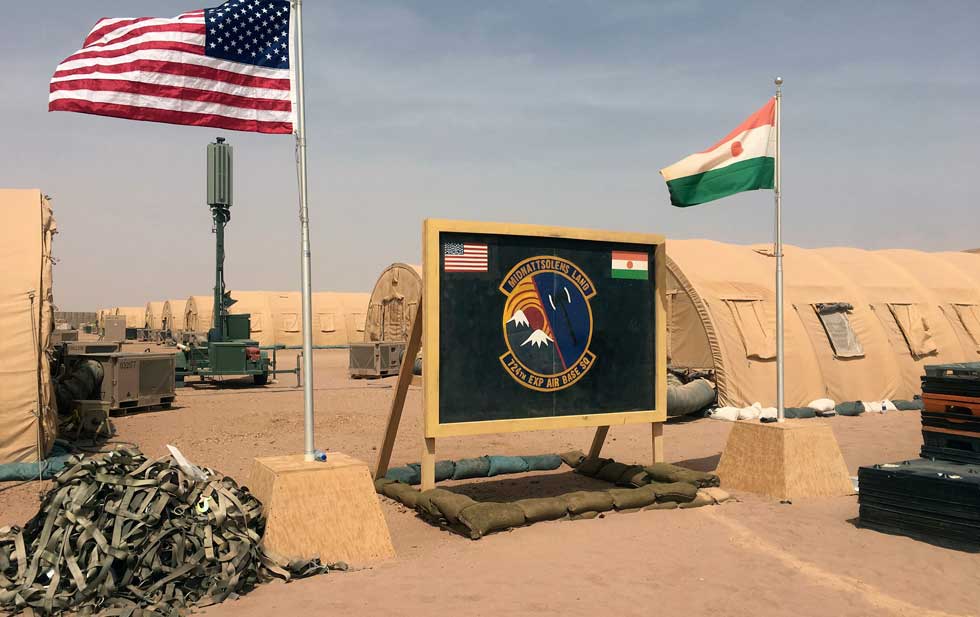Why do Vladimir Putin and Patriarch Kirill of Moscow, the Primate of the Russian Orthodox Church, so often seem to echo each other in their statements on Russia’s war against Ukraine, using language reminiscent of holy war? Is this a propagandistic attempt to cover up their real motive—namely the lust for power—or do they really mean what they say? To those with eyes to see and ears to hear, Russian words and actions make clear that they really do mean what they say, and that it is impossible to understand Russia’s motives in attacking Ukraine if one ignores the religious essence of it, however heretical that religious essence may be.
In Russia, political, military, and religious considerations have become inextricably intertwined. Christianity has been nationalized and, in effect, mobilized to support Russian hegemony not only over Ukraine but over all of Russia’s imagined rightful sphere of influence. It is strikingly apparent that the moral and civilizational force of Christianity forms a much more powerful basis for Russia’s actions, and a more compelling justification of Russia’s brutality in prosecuting the war than a merely secular justification ever could be.
The religiously ignorant West’s failure to understand this—and to pay sufficient attention to the real religious fervor that fuels Russia’s determination to win at all costs—is a great hindrance to the West’s ability to counter Russian aggression with the necessary will, resolve, and vigor.
How can we better understand this religious fervor? The essence of the heretical Christian justification of Russia’s war on Ukraine, though enigmatic and mysterious, is best encapsulated in the concept of the Russkiy Mir, the “Russian World.”
What is Russkiy Mir?
Russkiy Mir is a heretical national theology that expresses a mythical, teleological understanding of Russia not as a mere nation among other nations, but as the standard-bearer of a great Orthodox Christian civilization. Russkiy Mir asserts the mystical unity of all Russian speakers in their history, their language, and their faith. It is closely linked with an identitarian view of Russian Orthodoxy. Implicitly, to be Russian is to be Russian Orthodox, and to be Russian is to be Christian, whether or not one personally believes in the tenets of Christianity.
As its name implies, the Russian World refers to a distinct geographic area, though its limits are blurred. Patriarch Kirill once defined Russkiy Mir as “the common civilisational space founded on three pillars: Eastern Orthodoxy, Russian culture and especially the language and the common historical memory and … its common vision on … further social development.” That common civilizational space implicitly encompasses not just the Russian Federation, but all of the countries that Russia has traditionally dominated. At the very least, this means all of the former Soviet Union. Depending on political circumstances, Russian ambition, and the political will of the West (or lack thereof), Russkiy Mir might also incorporate all or some of the former Warsaw Pact nations. Above all, Russkiy Mir includes Belarus and Ukraine, countries that, like Russia, are of Eastern Slavic ethnicity and history.
Though the Russkiy Mir ideology did not come into existence until sometime in the 1990s, it is not a mere vehicle for Russian propaganda, invented out of whole cloth by Putin and his associates. Though Putin, Kirill, and others have refined it to apply to the aggression against Ukraine, the concept of the Russkiy Mir has deep historical roots reaching back more than a thousand years. Even before there was a Russia, the predecessor principalities that later formed the core of the Russian empire found justification for their exercise of power and territorial conquests in their role as guardians of Orthodox Christian civilization. Since the fall of the Soviet Union, the idea of Russia as the rightful leader of Christian Orthodox civilization has gained further ground. It has become an instinctive worldview anchor for many everyday Russians, often quite independent of personal Orthodox faith.
A key to the concept of the Russkiy Mir is its elusive vagueness, its all-encompassing and mystical nature. In many ways, it is an alternative worldview to that of the West, which is seen by contrast as the worldview of dry Enlightenment rationality, devoid of mystery and wonder.
The Russkiy Mir ideology sacralizes politics, lending it an enhanced sense of mission and a moral weight that is very useful to authoritarians such as Putin. Politics and religion are so thoroughly mixed that one can’t understand the religious without the political nor the political without the religious.
One of the most important components of Russkiy Mir is the mythologization of history. This mythology roots Russkiy Mir in the long history of the Russian people and imbues that history with meaning, purpose, and direction as the unfolding of Russia’s destiny over hundreds of years. Central to this is the idea of Russia as the protector and defender of Orthodox civilization, characterized not by the spiritually lifeless, scientistic rationalism of the West, but by veneration, adoration, and reverence for that which is holy and sublime.
Within the historical mythology of Russkiy Mir, Ukraine is absolutely central: the most significant event in the emergence of the Russian World occurred not in present-day Russia, but in present-day Ukraine just over a thousand years ago.
In the year 988, Vladimir the Great, the Prince of Novgorod and Grand Prince of Kiev, converted from paganism to Christianity and was baptized in Kherson in present-day Ukraine. Legend has it that, a year earlier, he had sent envoys to observe Muslim practices among the Bulgars, Latin Catholic rites among the Germans, and the Eastern Orthodox faith of the Greeks. The envoys returned describing that what they had seen among the Bulgars was sorrowful, that the ceremonies they had observed among the Catholic Germans were without glory, and that, by contrast, Greek Orthodox worship was beautiful and majestic, such that they felt that they were in the presence of God, as if transported to a heavenly realm. Thus, Vladimir chose Orthodoxy.
After his baptism, Vladimir decreed the mass baptism, in the Dnieper River, of the thousands of residents of Kyiv. Known as the “Baptism of Rus,” this event represents the key turning point in the Christianization of the eastern Slavs, and the symbolic birth of Russian Orthodoxy. For three hundred years following the Baptism of Rus’, Kyivan Rus’ was the spiritual center of the eastern Slavs.
In addition to the Baptism of Rus’, there are other historical events and figures that play a key role in the mythology of Russkiy Mir.
Most significantly to Russia today, the noble sacrifice and devotion to Mother Russia that the Russians displayed in World War II, the Great Patriotic War, is a cornerstone of Russian pride. The Russians lost approximately 24 million people, civilians and soldiers, in the Great Patriotic War. Yet, despite the immense suffering they endured, they ultimately triumphed over Nazi Germany. It is nearly impossible to overstate how important to the historical mythology of Russkiy Mir are the memory of that war and the veneration of those who fought and died in it.
Characteristically, a glorified Josef Stalin is also often a part of the Russkiy Mir mythology. As the Soviet ruler during World War II, he is seen as an agent of Russian destiny, towering over his contemporaries, emerging victorious from the Great Patriotic War, ensuring Russian domination of Eastern and Central Europe, and establishing the Soviet Union as a world power equal to the United States and Great Britain.
The Western view of the Soviet Union—namely as an oppressive communist regime that posed a mortal threat to the Free World for seventy years—misses the full story from the perspective of Russkiy Mir. While adherents of Russkiy Mir might well agree that communism is evil, the main focus is not on the Soviet Union as a communist dictatorship. Instead, the Soviet Union is seen as the vehicle by which Mother Russia took her rightful place as the dominant power throughout the Russian sphere of influence, rose to become a superpower equal to the United States, and enabled the Russian people to prevail over and crush Nazism.
This mystical attachment to Orthodox Christian Mother Russia, epitomized in the idea of the Russkiy Mir, helps explain why Stalin can, on the one hand, be recognized as a mass murderer and persecutor of Orthodox Christianity, but, on the other hand, be venerated as a heroic defender of the Russian soul. It helps explain why the Soviet Union can be remembered less as an oppressive totalitarian regime and more as a vindication of Russia’s proper status as a world power.
Russian Orthodoxy and Russian Identity
Another component of Russkiy Mir, along with the mythologization of history and the centrality of Ukraine, is Russian Orthodoxy as the essence of Russian-ness. To be Russian is to be Russian Orthodox. Religion entails service to the nation and the state, as the nation and state exist in service to religion.
This means that the war on Ukraine is a holy war, and that to fight in it is the holy duty of those called to the Russian military. Patriarch Kirill has gone so far as to promise salvation to those who die in the war. In a sermon in 2022, he said, “The Church realizes that if someone, driven by a sense of duty and the need to honor his oath, stays loyal to his vocation and dies while carrying out his military duty, then he is without any doubt doing a deed that is equal to sacrifice. He sacrifices himself for others. And therefore, we believe that this sacrifice washes away all the sins that a person has committed.”
While many Russian Orthodox voices echo Kirill, it is important to note that there are also many Russian Orthodox leaders and believers who oppose this instrumentalization of Christianity in support of war and aggression.
Russkiy Mir is about religion as identity, and about identity as a patriotic obligation. It is not about freedom. It is about belonging, and about accepting the authority of the Russian state, in which individual freedom—and Ukrainians’ national aspirations—must yield to the mystical unity of the Orthodox Russkiy Mir.
According to believers in Russkiy Mir, Ukraine, as Russian Orthodoxy’s birthplace, will always remain Russian Orthodox. But that isn’t the way it is. Though the largest religious group in Ukraine is Eastern Orthodox and affiliated with the Moscow Patriarchate, there are many other religious groups in Ukraine. Furthermore, the Russian military aggression against Ukraine has resulted in the breakaway of much of Ukrainian Orthodoxy from the Russian Orthodox Church. In 2018-2019, the independent Orthodox Church of Ukraine (OCU) was formed as an explicitly separate entity from the Russian Church. It has been recognized by the Ecumenical Patriarch of Constantinople, first among equals among the Eastern patriarchs, as independent of the authority of the Moscow Patriarchate. For adherents of Russkiy Mir, this is unacceptable.
Not surprisingly, religious freedom, which is reliably respected by Ukraine, is systematically violated in the areas of Ukraine that are under Russian control. It is an inevitable component of Russia’s war policy to target, damage, and destroy churches and other religious sites, and to harass, arrest, and sometimes kill priests, pastors, and other believers. Ukrainians in the occupied areas are to embrace the religious ethos of Russkiy Mir or pay dearly for their refusal to submit.
Religious Ukrainians understand the power of Russkiy Mir. They are speaking out against its perversion of the Christian faith. In January, the leaders of the major Christian confessions in Ukraine (with the exception of the Moscow-affiliated Ukrainian Orthodox Church) published a statement strongly condemning Russkiy Mir as “the ideological basis of Russia’s aggression against Ukraine, Russian war crimes, and the genocide of the Ukrainian people.” They asserted eloquently that Russkiy Mir does not
correspond to the foundations of the Orthodox faith and Christianity … violate[s] Christian principles and … [represents] a challenge to the preaching of the Gospel … [that] destroys the credibility of the Christian testimony.
Christian Russia and The World
Russkiy Mir is directed not only against Ukraine. Absolutely central to the Russian World is the idea of Christian Russia as a bulwark against the decadent, post-Christian West. Westerners think of Russia’s rivalry with the West as a political phenomenon, but Russia thinks of it not only politically, but in a religious-cultural way.
Russia’s foreign policy is all of a piece—it’s about regaining for Russia the glory and the world-power status of the Soviet era, and restoring the Russkiy Mir—and the Russian state that embodies it—to its rightful place among the great civilizations of the world. To this end, Russia aims to reassert its hegemony over all of what it considers the Russian civilizational space—both inside and outside of Russia itself—and to weaken Russia’s enemies, mainly the West. This is the purpose of the war in Ukraine. It is a primary motivation behind Russia’s perpetuation of frozen conflicts in Moldova, Georgia, Armenia-Azerbaijan, and, from 2014-2022, in Ukraine. It is the impetus of Russia’s ongoing campaigns to destabilize Western societies.
The global significance of the Russkiy Mir way of thinking is highlighted by its similarities to the current ideology of China, the West’s primary geopolitical rival.
Xi Jinping’s China, like Putin’s Russia, makes use of a “legitimizing mythology,” as American Enterprise Institute scholar Leon Aron has recently written in Commentary, a “militarized patriotism” founded upon “the alleged necessity of defending their countries from a supposedly … urgent threat from the U.S.-led West.” This mythology, in China as in Russia, is largely a historical mythology. Xi Jinping’s China evokes a ”’splendid’ 5,000-year civilization” that reveals China’s historical destiny to be a ”great and strong” nation and a “proud and active” global player. It also involves the generous use of quasi-religious language and the subordination of individual freedom to the mystical unity of the Chinese people as embodied in the Chinese state.
In particular, the similarities between Ukraine and Taiwan as seen from within this Russian-World/Chinese-World paradigm are extraordinary. As Aron writes, “For all the innumerable differences between Ukraine and Taiwan, the threats they respectively pose to Putin’s Russia and Xi’s China are essentially the same. Both are ethnically very close to, or identical with, their huge authoritarian neighbors. They are proto- or fully democratic and pro-Western. And taken as a whole, they are living negations of the key elements of both Moscow’s and Beijing’’ legitimizing narratives of national revival through confrontation with the West, the absence of civil and political liberties, … imperial expansion, and warmongering.”
It is undeniable that the West faces a truly menacing global predicament: a growing collaboration of dangerous and violent regimes—principally Russia, China, and Iran along with North Korea—all of whom legitimize their existence and their actions using many religious or quasi-religious elements, and who perceive their main common interest in ending the dominance of the decadent, materialistic, spiritually empty West, especially the United States.
Demands for the West
Unfortunately, Russia and our other adversaries have a point about the decadent West. The enervation of our societies, largely a result of our having rejected the faith that birthed and sustained us, has reached the point at which it is truly uncertain whether we have the will and determination to preserve what we have in the face of a growing number of formidable enemies.
Whatever one might think of Donald Trump, he was right when he said, in a speech in Warsaw in 2017, that “The fundamental question of our time is whether the West has the will to survive. Do we have the confidence in our values to defend them at any cost? … Do we have the desire and the courage to preserve our civilization in the face of those who would subvert and destroy it?”
Today, in the face of Russia’s brutal aggression against Ukraine, the now-unmistakable threat of China, Iran’s implacable campaign against everything the West stands for, and now, again, the reappearance of the Islamist threat—ironically made clear by the recent ISIS atrocity in Moscow—the question becomes even more urgent: do we still have what it takes to defend what we have achieved?
In contrast to the West, Russia has shown itself to be relentless, strong-willed, and persistent over the long term. Its determination and persistence arise precisely out of its religious fervor for the primacy of Russia as the rightful hegemon of Orthodox civilization. Let us not, out of our blindness to anything resembling religion, mistake Russkiy Mir for something less than it is. Let us not fail to recognize that Putin really does appear to believe that Ukraine is an integral part of Russkiy Mir, and that many Russians, both in elite circles and among average people, share this belief.
Furthermore, let us not fail to recognize that, for fervent believers in Russkiy Mir, the Russian world doesn’t end with Ukraine. If we allow Russia to succeed in Ukraine— and for Russia, “success” could mean another frozen conflict, a negotiated settlement in which Russia keeps the Ukrainian territory it has occupied since 2014—we must then be prepared for Russian aggression in Moldova, the Baltics, and possibly in Poland and beyond.
While being careful to avoid direct hostilities between Russia and NATO, we must understand that this is a civilizational moment. We must show civilizational resolve. We must find it in ourselves to match the will and the persistence that Russia has shown. We must increase our support for Ukraine, and sustain that support for however long it takes.




